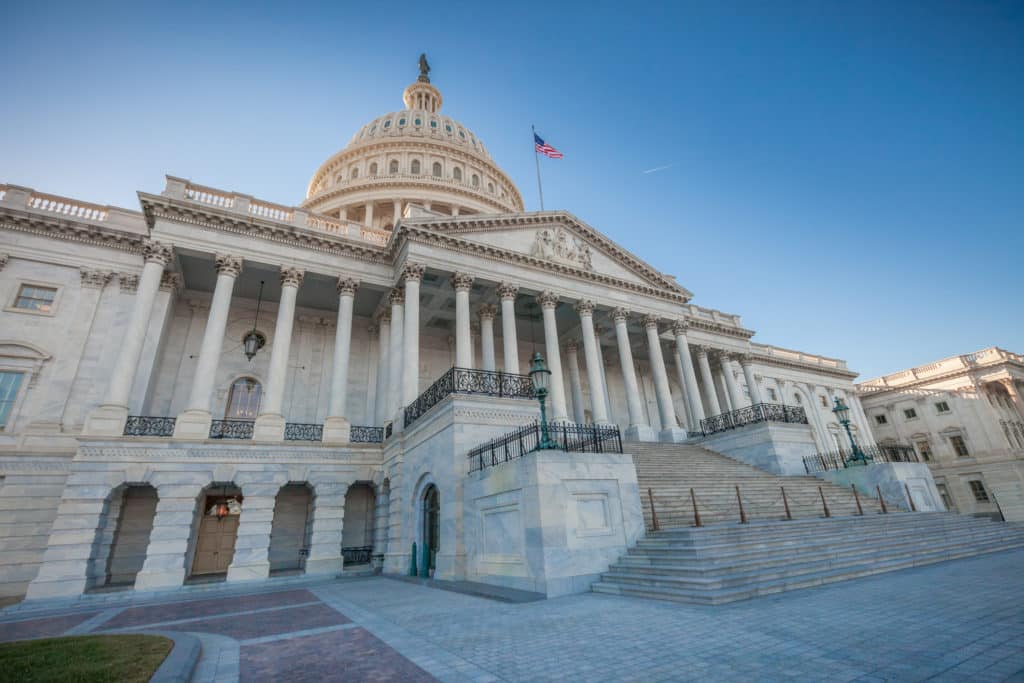1/25/21 11:30 EST Update: On January 25, the U.S. Senate voted 84-15 to confirm Janet Yellen as the Secretary of the Treasury.
On January 21, the United States Senate Committee on Finance held a hearing on the nomination of Janet Yellen for Secretary of the Treasury. In the questions for the record, Senator Charles Grassley (R-IA) asked Yellen about the massive delays plaguing the otherwise successful Internal Revenue Service (IRS) Whistleblower Program. While Yellen voiced her general support for whistleblowers, she did not provide a direct answer on her commitment to addressing the delays. Whistleblower advocates are calling for Yellen to commit to addressing issues with the IRS Whistleblower Program and to fixing loopholes in the recently passed Anti-Money Laundering (AML) Act.
“We appreciate Janet Yellen’s support for whistleblowers,” said whistleblower attorney Stephen M. Kohn, founding partner of qui tam firm Kohn, Kohn & Colapinto and Chairman of the Board of the National Whistleblower Center. “But we believe she should make specific on-the-record commitments to ensure that the current IRS whistleblower law works effectively and has the resources it needs to function.”
The IRS Whistleblower Office was created in 2006 with the passage of the Tax Relief and Health Care Act. The Office issues whistleblower awards to individuals who provide specific and credible information to the IRS that “results in the collection of taxes, penalties, interest or other amounts from the noncompliant taxpayer.”
In December, the IRS Whistleblower Office released its Fiscal Year 2020 Annual Report. The report highlights the program’s success but also details major issues. According to the report, in fiscal year 2020, whistleblower disclosures helped the IRS collect over $472 million from tax law violators and the IRS issued over $86 million in whistleblower awards to 169 individuals. However, on average, the IRS Whistleblower Office currently takes 10.79 years to process a whistleblower award claim. Whistleblower advocates warn these massive delays threaten to undermine the success of the program.
At the January 21 hearing on Yellen’s nomination, Senator Grassley, who authored important updates to the IRS Whistleblower Program in 2006, asked Yellen about her commitment to fixing the issues with the program. Grassley referenced the program’s success, noting that it has led to the “recovery of more than $6.1 billion in taxes that would have otherwise been lost to fraud,” but also brought up the problems addressed in the 2020 Annual Report. He stated that “over the past two years awards to whistleblowers have markedly declined while award-processing times have continued to steadily climb.”
In direct connection to the delay issue, Grassley asked Yellen: “As Treasury Secretary, will you commit to supporting the whistleblower program and to work with me, the IRS, and stakeholders to make improvements where necessary to ensure the program’s continued success?”
Yellen responded: “Whistleblowers are an important asset to the integrity of the agency and tax system more generally, and I will work to create an agency culture that respects whistleblowers and the laws that protect them.”
In her response, Yellen speaks of a culture of respecting whistleblowers but completely avoids the concrete issue of delays in granting whistleblower awards.
Whistleblower advocates are also calling for Yellen to commit to fixing loopholes in the recently passed AML Act. “The Secretary of Treasury has the responsibility to approve rules for the new AML whistleblower law,” Kohn said. “Yellen should commit, on-the-record, to a strict deadline for publishing AML whistleblower rules, and these rules need to mirror those approved by the Securities and Exchange Commission under a similar program. Additionally, Yellen should commit to ensuring that whistleblowers covered under the AML law are entitled to the same minimum award (either 10 or 15%) as those who report violations under the IRS, SEC, False Claims Act, and Commodity Exchange Act whistleblower laws. Without a minimum award the AML law will not work.”
The AML Act was passed by Congress on January 1 as a section of the yearly National Defense Authorization Act (NDAA) and became law when Congress overrode President Trump’s veto of the bill. The purported goal of the Act is to incentivize individuals to blow the whistle on money laundering through whistleblower rewards and protections. The Act is largely modeled off previous legislation which established successful whistleblower rewards programs, such as the Dodd-Frank Act (DFA) and the False Claims Act (FCA).
However, unlike these other laws, the AML Act does not establish a mandatory minimum amount for whistleblower rewards. Qualified whistleblowers are eligible to receive an award of up to 30% of funds recovered by the government but with no minimum threshold, whistleblower advocates warn that the Treasury Department could avoid properly rewarding deserving whistleblowers. Kohn previously explained that “the decision to grant awards is discretionary and the Secretary can effectively deny any whistleblower a meaningful award, for any reason whatsoever. An award as low as one penny cannot be appealed in court.”
On January 22, the Senate Committee on Finance unanimously approved Yellen’s nomination in a 26-0 vote. Yellen, the former chair of the Federal Reserve, is expected to be confirmed by the full Senate in the coming days. She would become the first female Secretary of the Treasury in the nation’s history. Both the IRS Whistleblower Program and the AML Act are under the purview of the Department of Treasury.
Read:
